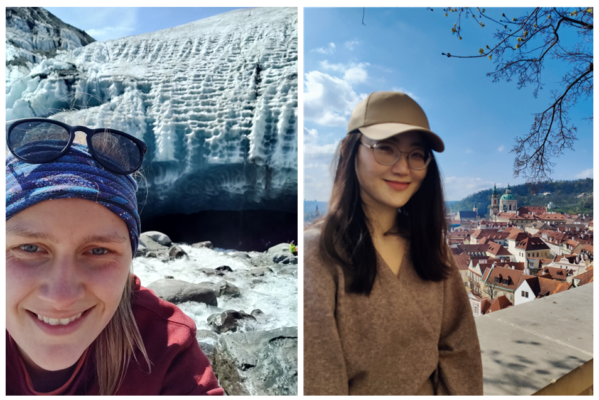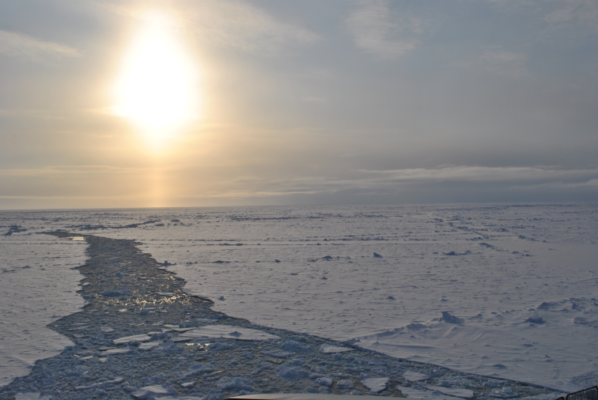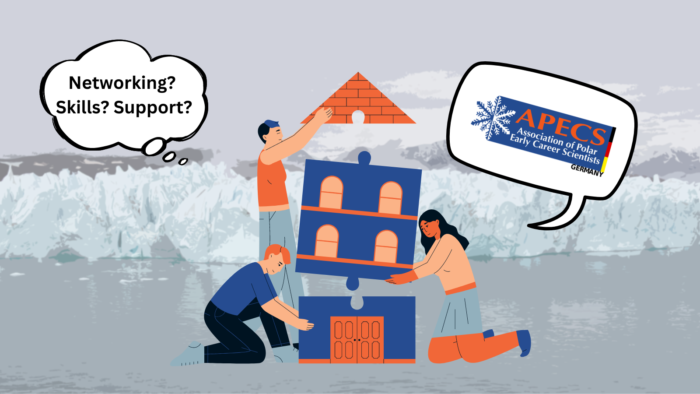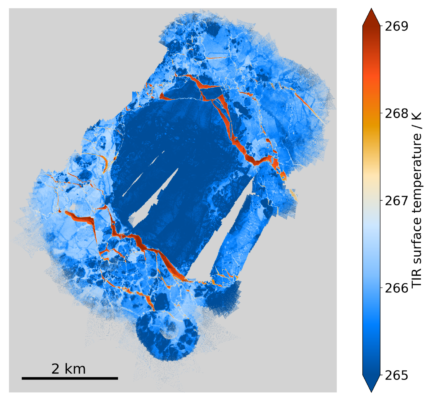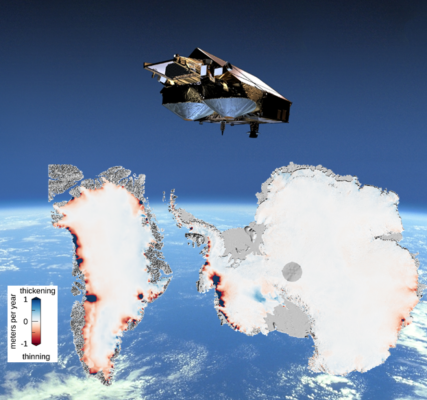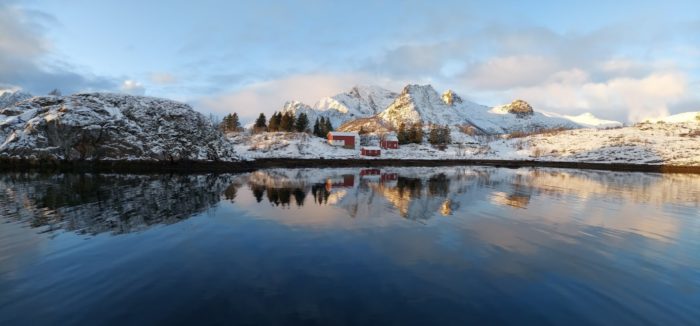After two years of great work, our current cryosphere division ECS representative TJ Young is passing on the task of representing the needs and wishes of the cryosphere division early career scientists (ECS). As they make up a majority of the EGU members, their representatives make sure to see their needs and voices heard. You might know that the EGU ECS community is represented by two union-level ...[Read More]
What not to miss at this year’s EGU General Assembly
We are already half way through April and that means that this year’s EGU General Assembly (GA) is just around the corner. Whether this will be your first, second or seventh EGU GA, you are probably still overwhelmed by the jungle of opportunities there are – courses, medal lectures, talks, discussions, poster sessions – no? We certainly still are and that’s why we always collect our f ...[Read More]
Did you know that cracks play a large role in the Arctic sea ice production?

What do you need to form sea ice? Well, you can start with some sea water, an ocean will do, and cold air above it. Once a layer of ice starts forming, break it to make some cracks. You would have not thought of that? Yet, our recent study suggests cracks in the ice contribute significantly to Arctic winter sea ice production. A relationship between sea ice formation and breakup? We have known for ...[Read More]
Highlighted Paper – The ice factories of the Arctic Ocean
Each year, the Arctic sea ice goes through a cycle of melting and freezing. From March to September, sea ice gradually melts and becomes thinner, and from October to March, the water freezes again. In our warming climate, we see that more and more ice melts each year. One would expect that the ice would also freeze less, but we have observed that the ice growth – or ice production – has increased ...[Read More]
3 Reasons to engage in early career networks
There are several early career groups, which are affiliated with cryosphere-based research in one way or another. APECS (Association of Polar Early Career Scientists) is an international network that is present during many occasions and events in the world of polar research. Have you ever wondered why busy early career researchers (ECRs) use their time also for volunteering in such groups? Today, ...[Read More]
Did you know about the dark secrets of Arctic sea ice?
Have you ever wondered what dark secrets the Arctic sea ice holds during the harsh winter months? Imagine total darkness in the central Arctic, making it almost impossible to gather scientific information. At this time of the year, usually only satellite observations are available. This changed in September 2019 when a team of scientists collected in situ and airborne data in the central Arctic as ...[Read More]
Image of the Week – Receiving messages from the deep
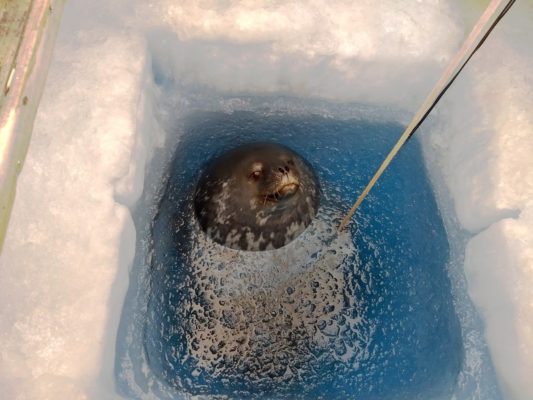
The Weddell Seal pops his head up through the hole in the floor of the shipping container… for the fourth time today. The shipping container is one of several making up our field camp on sea ice, 40 km from Scott Base – situated on Ross Island, in the south-western Ross Sea. Today I talk about the sub-ice platelet layer, which provides the base for a rich marine environment. Generating super ...[Read More]
For Dummies: Radar altimetry for measuring ice sheet elevation changes
Does measuring the surface of the ice sheets provide more than superficial knowledge of their current status? Read further to find out why the answer is definitely yes! Measuring surface elevation changes actually tells us where Greenland and Antarctica are thinning or thickening and how much they contribute to sea level rise. Scientists have been doing this for the past three decades, so keep on ...[Read More]
Arctic Frontiers Emerging Leaders
Here on the Cryoblog we often talk about the impacts of climate change in the Cryosphere. So now for something completely different: how does this fit into sustainable development in the Arctic? Here, I take you on a journey through the Arctic in a round-up of the recent Arctic Frontiers Emerging Leaders program, a unique early-career and mentoring program bringing together academic, industry, ind ...[Read More]
Enigmatic Climatic Event: Antarctic Cold Reversal
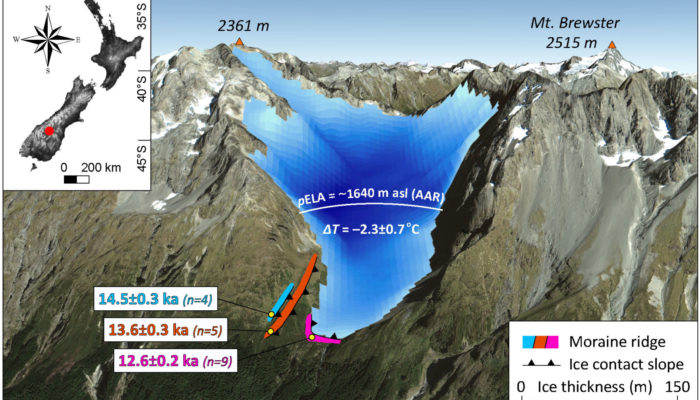
In this week’s blog, Levan Tielidze tells us about the insight into the response of mountain glaciers to the Antarctic Cold Reversal (ACR) event in New Zealand to better understand the climatic history of the Southern Hemisphere during the last deglaciation. The ACR was a cold period occurred in the Southern Hemisphere during the transition from the last glacial period to the current interglacial ...[Read More]

